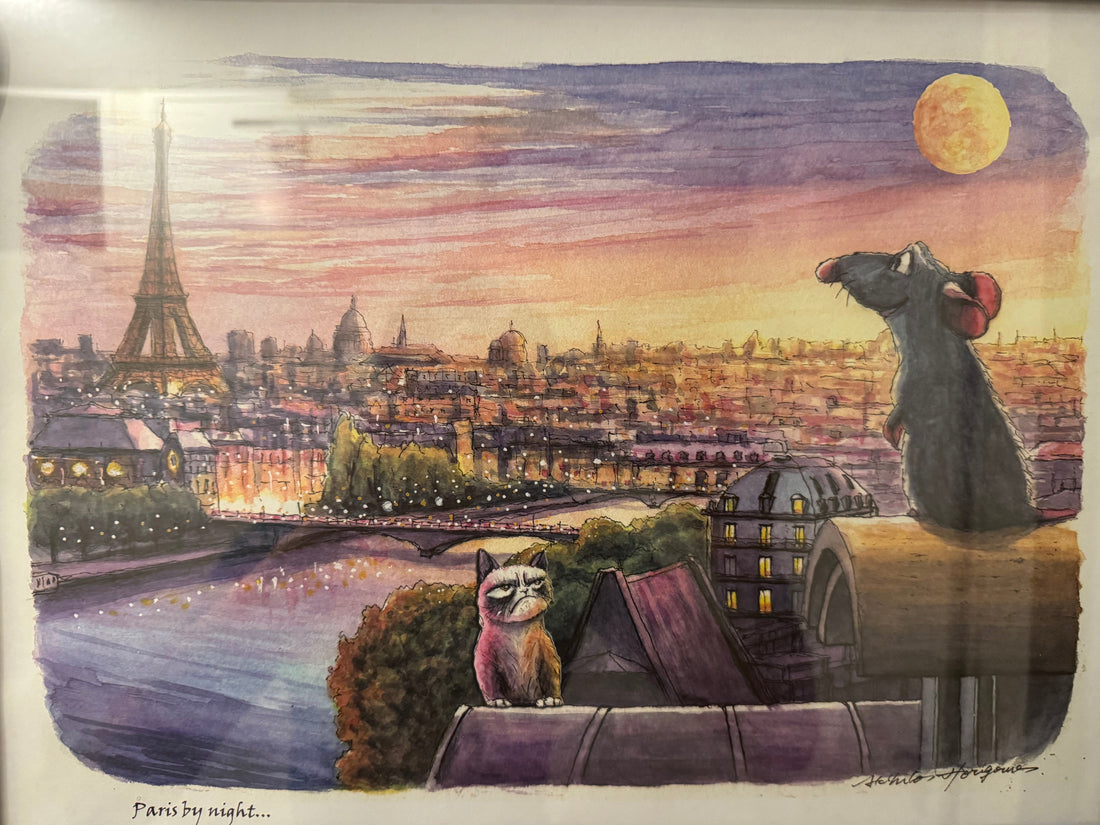
Anton Ego, Ratatouille, and the Meaning of Art
Share
The critic Anton Ego sits alone in Gusteau’s restaurant.
He’s cold, rigid, powerful. His pen can destroy chefs, careers, reputations. And then he takes a bite of a simple dish: ratatouille.
In that moment, Ratatouille (2007) delivers one of the best lessons about art, ambition, and beauty. The scene isn’t really about food — it’s about what art does to us.
Anton Ego represents the professional critic. Someone who judges art from above, who sees himself as the gatekeeper of taste. Like many art critics, he confuses knowledge with authority. But art isn’t about control. It’s about connection.
That first bite takes him back to his childhood. His cold intellectual shield breaks. This is what real art does — it cuts through ego and brings us back to something real. It bypasses theory, and hits directly into the emotional core.
Ratatouille is also about the artist’s journey. Remy, the rat, wants to cook. He faces doubt, rejection, prejudice. He isn’t “supposed” to be a chef. Just like many artists aren’t “supposed” to succeed. The world tells them that art is reserved for the few, for the chosen, for the trained.
But Remy keeps going. And like every true artist, his ambition is not for fame, but for creation itself. For the joy of making something beautiful.
Anton Ego undergoes a transformation. That is rare. Most critics, like many people, are locked into their views. But art has the unique power to break those walls.
Ego’s final review is one of the best statements about art ever written in a Hollywood film:
“In many ways, the work of a critic is easy. We risk very little, yet enjoy a position over those who offer up their work and their selves to our judgment. We thrive on negative criticism, which is fun to write and to read. But the bitter truth we critics must face, is that in the grand scheme of things, the average piece of junk is probably more meaningful than our criticism designating it so. But there are times when a critic truly risks something, and that is in the discovery and defense of the new. The world is often unkind to new talent, new creations. The new needs friends. Last night, I experienced something new: an extraordinary meal from a singularly unexpected source. To say that both the meal and its maker have challenged my preconceptions about fine cooking is a gross understatement. They have rocked me to my core. In the past, I have made no secret of my disdain for Chef Gusteau's famous motto, "Anyone can cook." But I realize, only now do I truly understand what he meant. Not everyone can become a great artist; but a great artist can come from anywhere. It is difficult to imagine more humble origins than those of the genius now cooking at Gusteau's, who is, in this critic's opinion, nothing less than the finest chef in France. I will be returning to Gusteau's soon, hungry for more.”
Art is not about status or authority. It’s about honesty, vulnerability, and the courage to create.
This story echoes ancient philosophical debates. Plato saw art as dangerous — a copy of a copy, far from truth. Aristotle, on the other hand, saw art as a way to understand life through imitation.
Ratatouille lands closer to Aristotle: art is real because it reflects our experience. It makes us feel something. It helps us understand ourselves.
Beauty is not complicated. Beauty is not owned by critics or institutions. It can be found in a simple dish. Or a small painting. Or a handmade poster. Art lives in experience, not in theory.
And of course, all of this happens in Paris — the city of art, food, and ambition. A place where thousands of artists chase beauty, face rejection, and keep creating anyway.
Ratatouille is a love letter to that spirit: the belief that art matters, that beauty is worth chasing, even when the world doubts you.
The true artist does not create to please critics. The artist creates because there is something inside that must be made real. Art is not a career choice. It’s a need. A calling.
And when it’s honest, even the harshest critic might be forced to drop their armor and feel.
